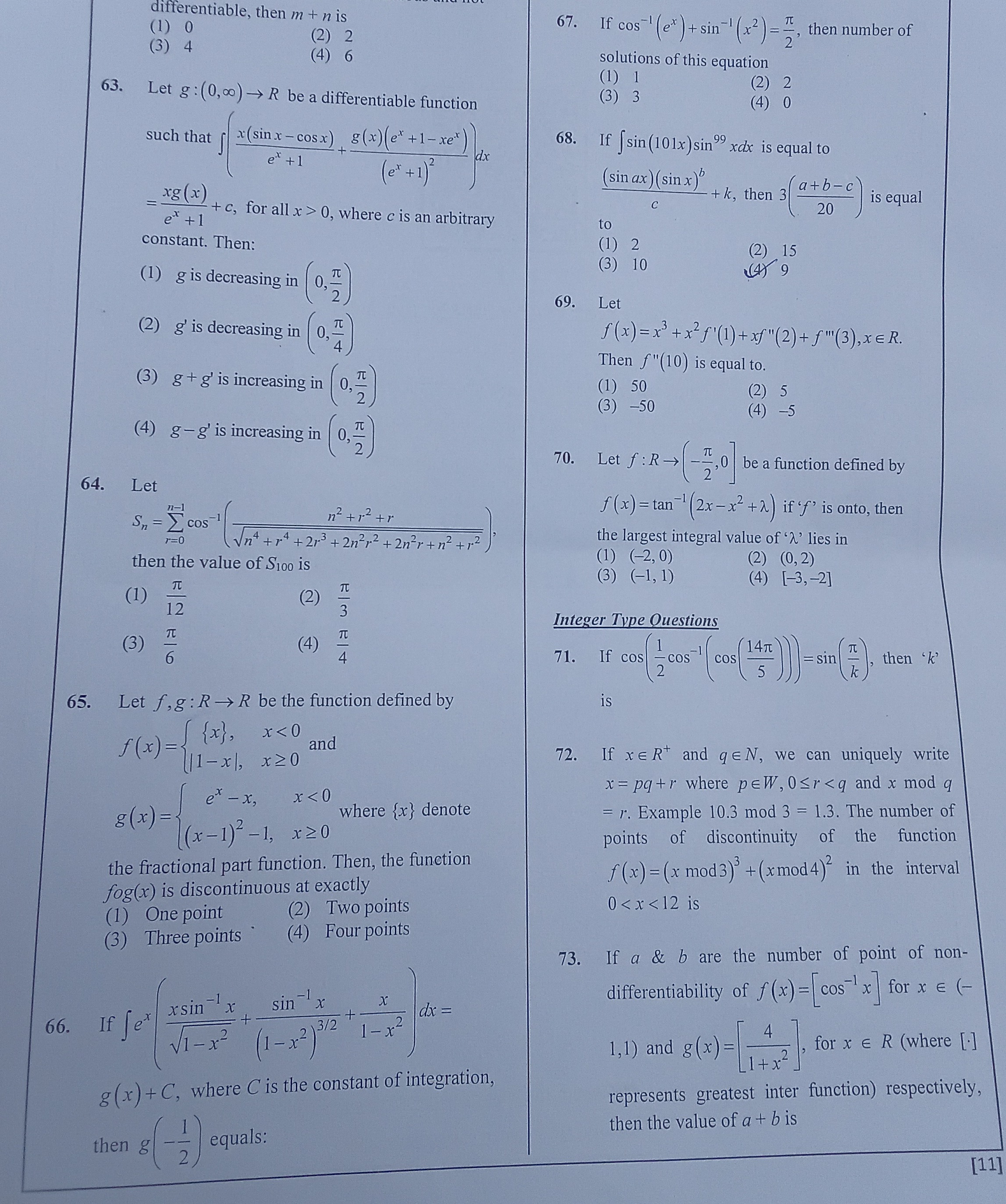Question
Question: If $cos^{-1}(e^x) + sin^{-1}(x^2) = \frac{\pi}{2}$, then number of solutions of this equation...
If cos−1(ex)+sin−1(x2)=2π, then number of solutions of this equation

1
3
2
0
1
Solution
The equation is cos−1(ex)+sin−1(x2)=2π. We know that cos−1(y)+sin−1(y)=2π for y∈[−1,1]. For the given equation to hold, we must have ex=x2. Also, the arguments must be in the domain of the respective inverse trigonometric functions:
- For cos−1(ex): −1≤ex≤1. Since ex>0, this means 0<ex≤1, which implies x≤0.
- For sin−1(x2): −1≤x2≤1. Since x2≥0, this means 0≤x2≤1, which implies −1≤x≤1. Combining these, the valid range for x is [−1,0].
Now, we need to find the number of solutions for ex=x2 in [−1,0]. Let h(x)=ex−x2. We are looking for roots of h(x)=0 in [−1,0]. h(−1)=e−1−(−1)2=e1−1<0. h(0)=e0−02=1>0. By the Intermediate Value Theorem, there is at least one root in (−1,0). Let's examine the derivative: h′(x)=ex−2x. h′′(x)=ex−2. For x∈[−1,0], ex∈[1/e,1], so h′′(x)<0. This means h′(x) is decreasing in [−1,0]. h′(−1)=e−1+2>0. h′(0)=1>0. Since h′(x) is decreasing and positive at the endpoints, h′(x)>0 in [−1,0]. Thus, h(x) is strictly increasing in [−1,0]. A strictly increasing continuous function can have at most one root. Since we found at least one root, there is exactly one root. Therefore, there is 1 solution.
